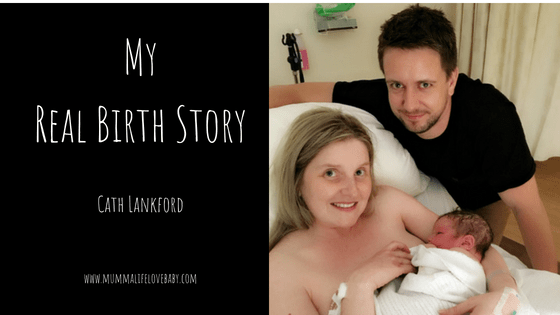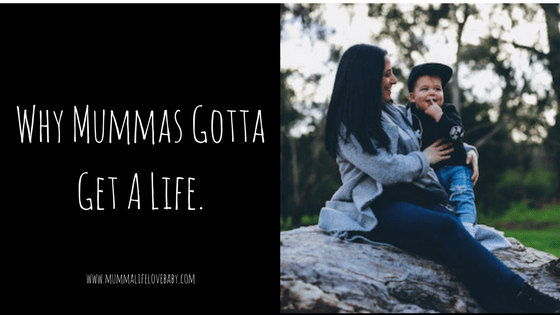I must confess that I had not heard of Obstetric Cholestasis before. According to BabyCentre Australia, it is a condition that affects less than one percent of pregnant women in Australia, and it is one that hugely effected the contributor of our latest Real Birth Story – Brea Walker. It made getting through her pregnancy an incredibly uncomfortable struggle.
Did you read Brea’s Birth Story? If not, read it here, now!
In Brea’s latest contribution she explains what suffering from Obstetric Cholestasis is like, and she provides her top tips to get through this difficult condition.
I hope you enjoy it!
Coping with Obstetric Cholestasis through multiple pregnancies – By Brea Walker.
During my first pregnancy in the second trimester, I started getting extremely itchy on my body. What started as an itch to palms of hands and soles of the feet, quickly became extreme itchiness all over that caused me to scratch until I bled. This is not a stretching itch to the abdomen or chest. This itch gets worse as you scratch it. I often also felt a burning sensation afterwards but I am not sure if this is due to breaking the skin.
I struggled with this itch for weeks before mentioning it to the obstetrician. I was sent for fasting bloods the next morning and the results confirmed that my bile salts were high and my liver function was abnormal. My low risk twin pregnancy was now upgraded to high risk and my blood tests became a weekly occurrence and appointments increased.
So what is Cholestasis?
Briefly explained, it is a condition that affects the mums liver during pregnancy. It actually has nothing to do with the baby.
There is still a lot of research required to find the true reasoning for this condition. Some think its genetic makeup whilst others think it’s the increased hormones during pregnancy.
Basically it means that the bile salts that would normally be excreted from our system through the normal passage, accumulate in large amounts in the bloodstream and try to escape through skin. The best I can describe my itch is like creepy crawlies under the skin that pulsates my blood vessels once scratched. The itch gets stronger and stronger and often without noticing you have broken the skin and caused yourself to bleed.
A lot of mums with Cholestasis will have scratches all over their bodies (especially during sleep).
There is some good news in treating the condition with a drug called Ursofalk. This drug is not a PBS drug within Australia (for Obstetric Cholestasis) for most, so expect to be out-of-pocket unless you are lucky enough to have a doctor who can find a loop-hole. A negative is that it doesn’t guarantee to stop the itch but it does help to keep levels lower. The itch will disappear only after the birth of the baby.
Although they have not linked Cholestasis to affecting the baby, they do say there is a slighter higher risk of still birth after the 36-37 week gestation. Most obstetricians will suggest induction or c-sections at or before 37 weeks depending on liver function tests. Most mums with Cholestasis will not be too worried about having an early induction, especially those that have had high levels since 6 weeks.
This is the reason my twins were born premature at 35 weeks. To be honest, I don’t know how much longer I could have lasted anyway as the itch was becoming extremely unbearable.
In 2015, I fell pregnant with our last little boy. I knew warning signs this time round and surprise surprise the itch started again, but this time later in the pregnancy. I started feeling a slight itch at around 25 weeks but with a bit of experience, I was able to control the itch by increasing my water intake and eating a low fat diet until approximately 32 weeks. Blood results confirmed what I already knew.
I was able to make it through this time round to have a full term baby at 37 weeks via induction, and I think that it was the following tips that helped me to survive the unbearable condition that is Obstetric Cholestasis.
My tips to surviving the itch:
- Take the medication
- Drink plenty of water and watch that your diet is not too high in fats or dairy
- Full body scrub at night followed by light moisturiser (I used the dove in shower moisturiser)
- Followed by lathering your body in calamine lotion
- Antihistamine – when the itch was really bad I was given a prescription for antihistamine.
- Keep your body cool – the heat makes it worse
And my top tip is that if you are concerned that your itch might be more than the usual skin itch during pregnancy, please see your GP as early as possible. The earliest this is diagnosed the better.
Have you experienced Obstetric Cholestasis yourself? If so, do you have any of your own tips that you would like to share that helped you? If so, leave a comment below and help other mammas going through it themselves!
About The Writer:
Brea is a mum to gorgeous 4-year-old twin boys and a 20-month-old boy, as well as a step mum to a 10-year-old girl. She is a mummy blogger and small business owner of an online shop – Mamma Bee. Mamma Bee is an online baby and kids shop that provides practical products that are loved and tested by parents all over Australia.
Make sure you check out her story, and then head over to her website for some gorgeous goodies for infants, newborns and mummas!
You can follow Mamma Bee via the following platforms:
Website – https://www.mamma-bee.com.au
Instagram – https://www.instagram.com/mammabee/
Facebook – www.facebook.com/mammabeeboutique




